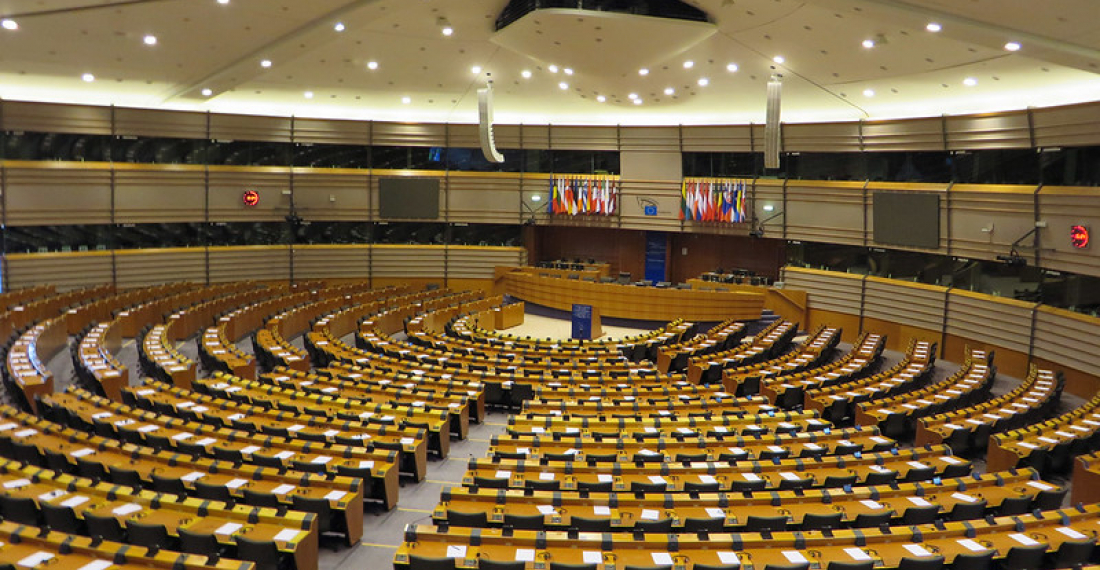This analysis is prepared by the editorial team of commonspace.eu
On 11 March 2021 the European Parliament adopted a toughly worded resolution on the human rights situation in Bahrain focusing in particular on the cases of death row inmates and human rights defenders. The resolution was adopted with an unusually broad consensus, with 633 votes in favour, 11 against with 45 abstentions. The resolution exposes the dilemma in Europe as the EU seeks closer relations with the Gulf states, but where concerns about human rights remain high.
In the debate on Bahrain, MEPs were deeply concerned that ten years after the ‘Arab Spring’ uprising in 2011, the human rights situation in the country continues to worsen. Arbitrary arrests continue, the death penalty is still being applied, human rights defenders are prosecuted and harassed, and civil and political rights and freedoms of association, assembly, and expression continue to be denied.
The resolution strongly condemns the sentencing to death of Mohammed Ramadan and Husain Ali Moosa, and urges the Bahraini authorities, and in particular His Majesty Sheikh Hamad bin Isa Al Khalifa, to halt their execution immediately. Their sentences must also be commuted and there must be a retrial that fully complies with international fair trial standards and excludes evidence obtained under torture, MEPs say.
"The European Parliament further strongly deplores the lifting of the de facto moratorium on the use of the death penalty in Bahrain and calls on the authorities to introduce immediately a new moratorium on the use of capital punishment as a step towards its abolition. MEPs also demand that all human rights defenders and prisoners of conscience in the country be immediately and unconditionally released."
The Bahraini government must stop harassing human rights defenders and immediately lift the travel ban on them, MEPs stress. The country’s authorities must also guarantee that human rights defenders are able to carry out their legitimate activities under all circumstances.
The full text of the resolution is available here.
The resolution was swiftly and strongly condemned by the Bahraini authorities, as well as by members of the Bahraini parliament.
Bahrain’s relations with the EU are based on friendship and mutual respect, chairman of the Foreign Affairs, Defence and National Security Committee at the Council of Representatives, MP Mohammed Al-Sisi Al-Buainain said. He rejected any foreign intervention and guardianship on the country’s people, especially – he said – when the matter was based on “unfair and suspicious sources.”
Al-Buainain further affirmed that the EP had not contacted the elected Representatives Council, adding that Bahrain’s human rights system had achieved “remarkable strides” citing the ‘Open Prison' policy which aims to ensure that convicts and detainees are treated according to the highest human rights laws. Al-Buainain urged the EP to visit the kingdom and verify the facts about the human rights situation in the kingdom.
The largely symbolic Arab Parliament also rejected the EP resolution, saying it represented a blatant interference in the country’s domestic affairs. It further urged the EP to stop making itself the guardian of Human Rights situation in the Arab countries.
The human rights situation in Bahrain has been under scrutiny by the international community for a long time, and the Bahraini leadership has consistently been very sensitive and dismissive of such criticism. However, the emphasis in the European Parliament resolution on the death penalty leaves little space for debate. Bahrain either has or does not have the death penalty, and as far as Europe is concerned, there should be no ifs or buts; the death penalty should not be practised – preferably abolished but at least under a complete moratorium.
Speaking at the end of the European Parliament debate, EU Commissioner Jutta Urpilainen said:
“I am aware of the concerns this House has been expressing for several years in relation to the cases of death row inmates and human rights defenders; and overall on the human rights situation in Bahrain, as also proven by the number of EP resolutions on the matter. Human rights represent a core dimension of EU’s engagement with Bahrain, featuring regularly in high-level meetings and annual Human Rights Dialogues with the country.”
The Commissioner added:
“The recent visit of the Foreign Minister of Bahrain [10 February] to Brussels offered the opportunity to emphasize the importance of human rights as a key element of EU-Bahrain relations. It also allowed the HRVP to raise several cases of imprisoned activists and human rights defenders, pleading for a solution including on humanitarian grounds. We reiterated publicly the EU’s principled position against the death penalty. The EU has consistently been encouraging Bahrain to introduce a moratorium on executions as a first step towards abolition.”






